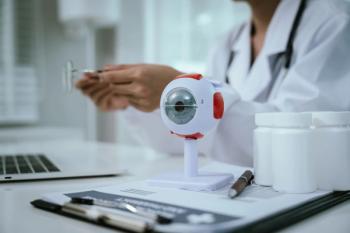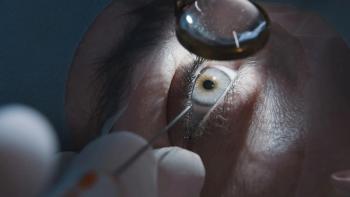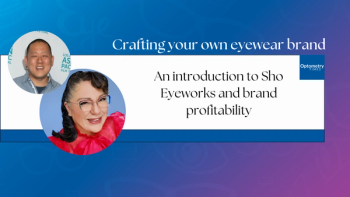
Women's eye-health education needed
Results of a survey conducted by Transitions Optical reveal that women are significantly more likely than men to experience various eye conditions and vision problems and more likely to identify certain health and environmental factors as negatively affecting vision.
Key Points
Pinellas Park, FL-Results of a survey conducted by Transitions Optical reveal that women are significantly more likely than men to experience various eye conditions and vision problems and more likely to identify certain health and environmental factors as negatively affecting vision. The results indicate a need for increased healthy sight education addressing specific eye health needs of women, according to the company.
The online survey, conducted by Harris Interactive and Ipsos, a global market research company, questioned 10,574 individuals in eight countries, including the United States.
Key findings of the survey: Nearly 75% of respondents reported having some sort of eye condition or vision problem. Women were slightly more likely than men to report having an eye condition or vision problem, but a significantly higher percentage of women reported trouble seeing at night, eye strain, eye fatigue, light sensitivity, dry eye, or cataract. In both sexes, the presence of eye conditions and vision problems increased with age.
In other company news, Transitions now offers eye-care professionals (ECPs) a guide to the Facebook Web site to help them professionally leverage this social media outlet.
The guide, Putting Your Practice on Facebook, explains what social media are, where Facebook fits in, and how it can help connect professionals with patients. The guide notes that sharing information about events, healthy sight promotions, and the practice are some examples of the information ECPs share with patients on Facebook.
Further, Transitions manages its own Facebook page, Transitions Lenses, Healthy Sight Professionals Page, where ECPs can stay up-to-date on the latest news from the company. The page also provides a forum for peer-to-peer dialogue.
In another effort to create open communication between patient and professional, Transitions brought together a panel of experts for a roundtable discussion about reaching an increasingly diverse patient base.
Research has shown that cultural and language barriers prevent many patients from receiving proper treatment. A consensus paper, Cultural and Linguistic Considerations for Vision Care, resulting from the roundtable discussions identifies strategies for providers to promote cultural competency within their practices using the national Culturally and Linguistically Appropriate Services standards. Those standards were developed by the U.S. Department of Health and Human Services' Office of Minority Health to improve access to and quality of health care for minorities.
Newsletter
Want more insights like this? Subscribe to Optometry Times and get clinical pearls and practice tips delivered straight to your inbox.













































